A New Chapter in a Family Story
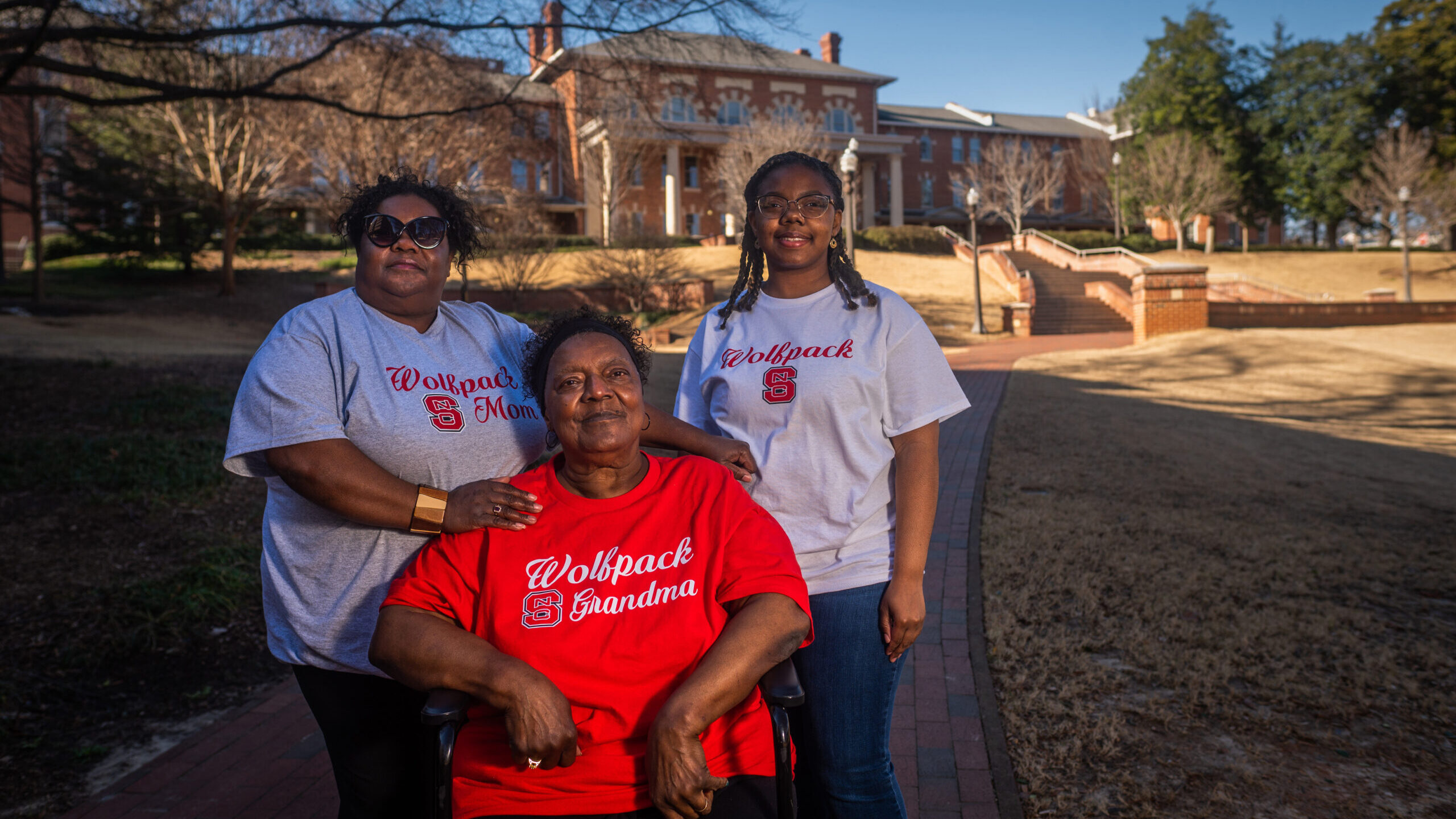
Kacey Cooper will become a first-generation college graduate when she completes her degree in English this May. But while she may be the first in her family to matriculate as a student, she carries an NC State legacy decades in the making.
Cooper hails from Spring Hope, North Carolina, a town outside of Rocky Mount in Nash County. Her family has lived in the area for years, and in the 1960s, Otellia Brown — Cooper’s great-grandmother — commuted up to an hour each day to work in NC State’s housekeeping department. As an employee, she was eligible to take classes to learn reading and writing, and Cooper grew up hearing stories about her great-grandmother practicing her sentences over and over.
Years later, in the 1990s, Cooper’s grandmother, Phyllis Brown Harris, also joined the housekeeping department at NC State, riding from Spring Hope to Raleigh with other family members and friends who worked at the university.
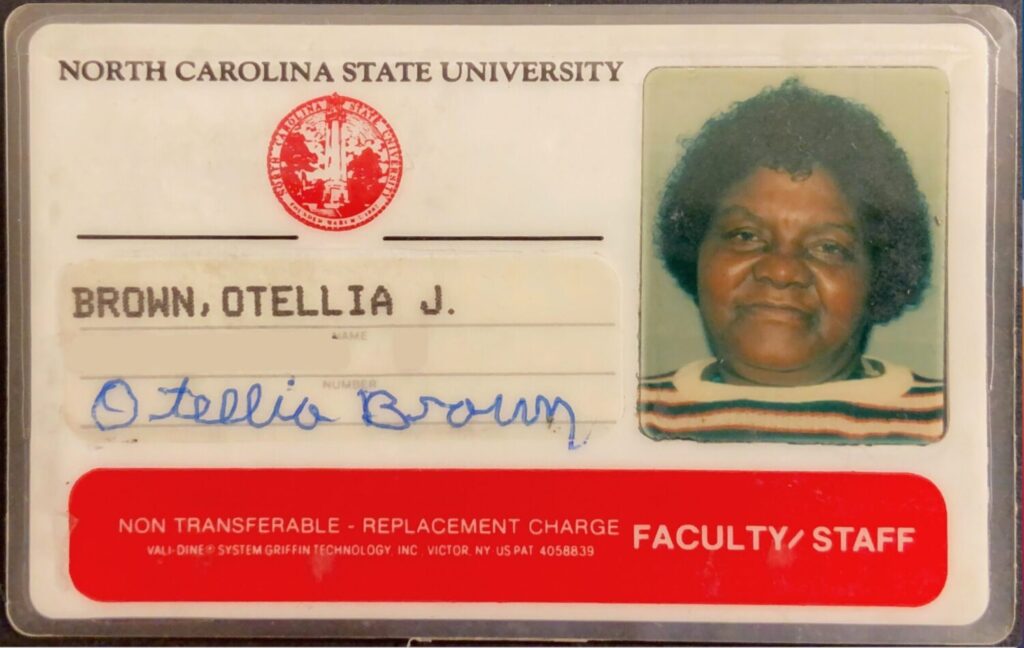
Cooper explained that while society may not praise housekeeping and cleaning jobs as much as other roles, for her family members who grew up in a small town during segregation and its effects, their work was a source of pride.
“They were doing well for themselves by going to Raleigh and making more money and having more diverse opportunities,” she said.
One story Cooper remembers was the test her grandmother had to take before working with certain cleaning agents, since some chemicals are harmful to mix. Between a lack of financial resources and the underfunding of the segregated public education system in Spring Hope, Harris had left school early, but she was undaunted by the test.
“She asked my mom to help her study, and she got a near-perfect score while a lot of other people struggled. They were all surprised by how well she did,” Cooper said. “That’s one of her favorite memories. She was so proud because she never had a formal education, but she was very good at her craft of cleaning and making sure everything was ready for the public.”
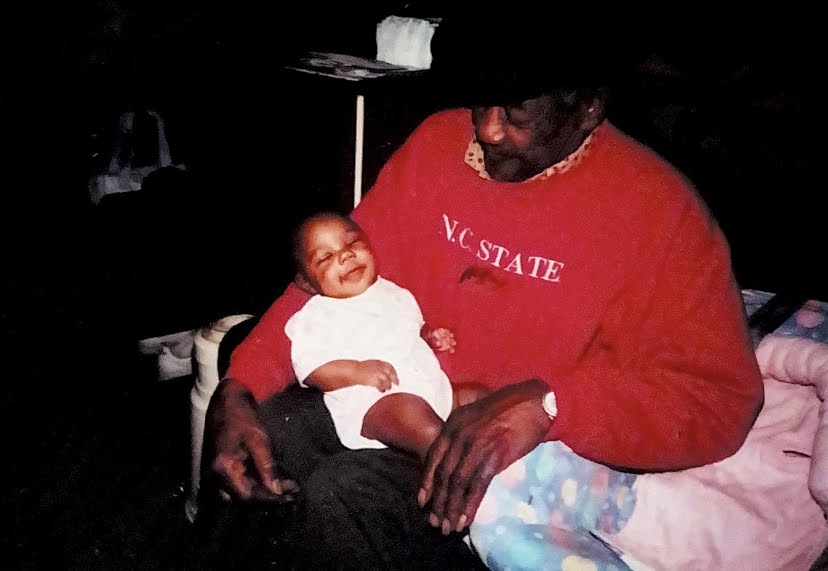
Surrounded by so many NC State stories, Cooper had it in her mind early on that she’d join the Wolfpack herself one day. “Even though I was already a hard worker in high school, I don’t think I thought about how hard I’d have to work to get in, or how significant it was for me to go as one of their descendents. As a first-generation student, I didn’t know about things like the application process and financial aid. It was because of my grandmothers’ stories that I thought I would attend one day,” she said.
That day looked like it would come in 2020, when Cooper graduated high school and was accepted to NC State. However, with the impact of the early phases of COVID-19 on education, she elected to go to Nash County Community College and complete her associate’s degree before transferring. The year also helped her prepare more for the transition from small, rural high school to a large university.
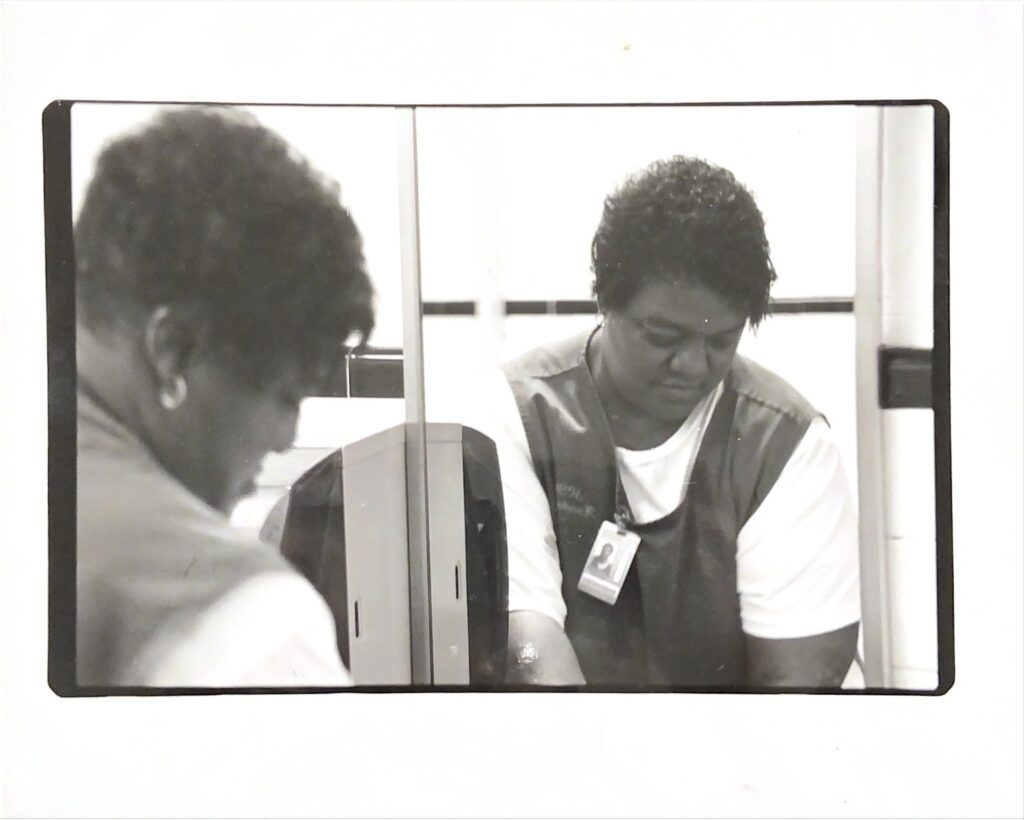
As big as NC State is, it also feels like home to Cooper. Most of her classes are in the buildings surrounding the Court of North Carolina, not far from where Harris, now retired, had worked, and Harris’ former supervisor, Shirley Harris (no relation), even gave Cooper a tour when she first arrived.
While this path was less direct than originally planned, Cooper has never walked it alone, thanks to the trails blazed by Brown and Harris, the support of her mother, Kathy Harris Cooper — and support from the Nell Family Extraordinary Opportunity Scholarship, which is part of NC State’s universitywide Extraordinary Opportunity Scholarship Initiative.
The name stands out to Cooper. “Extraordinary opportunity means giving students who are first-generation and going to school in a pandemic the opportunity to thrive at a bigger university,” she said.
“It’s been an extraordinary opportunity for me to get out of my comfort zone and meet more diverse groups of people, and people who share my love of literature and research.”
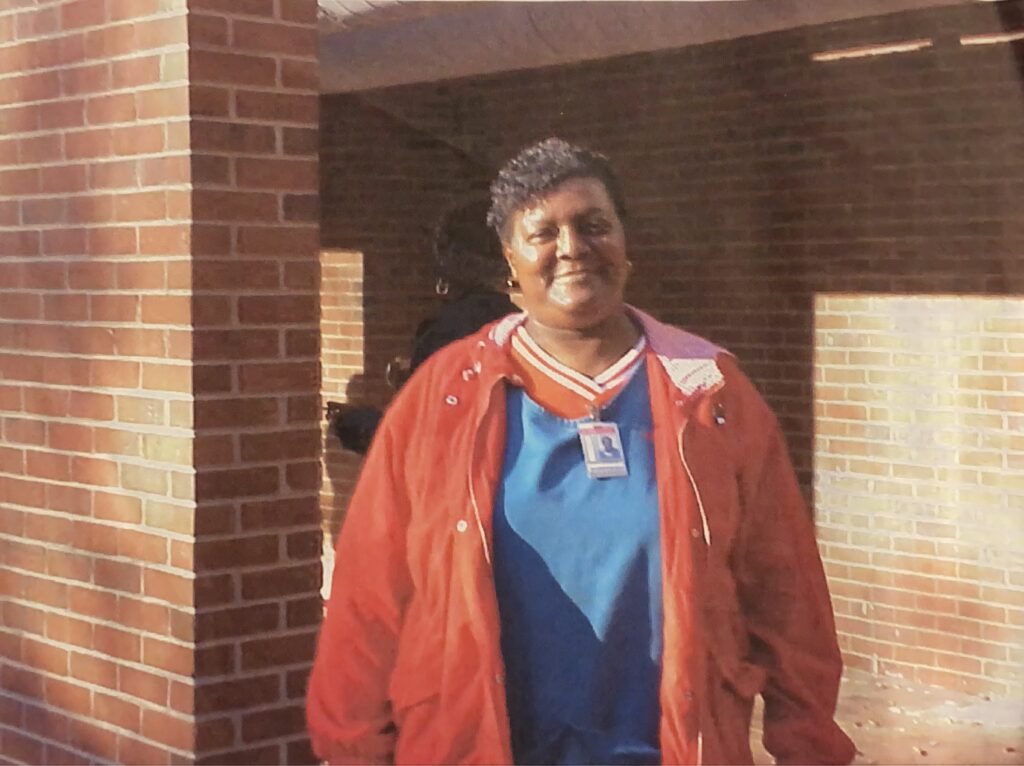
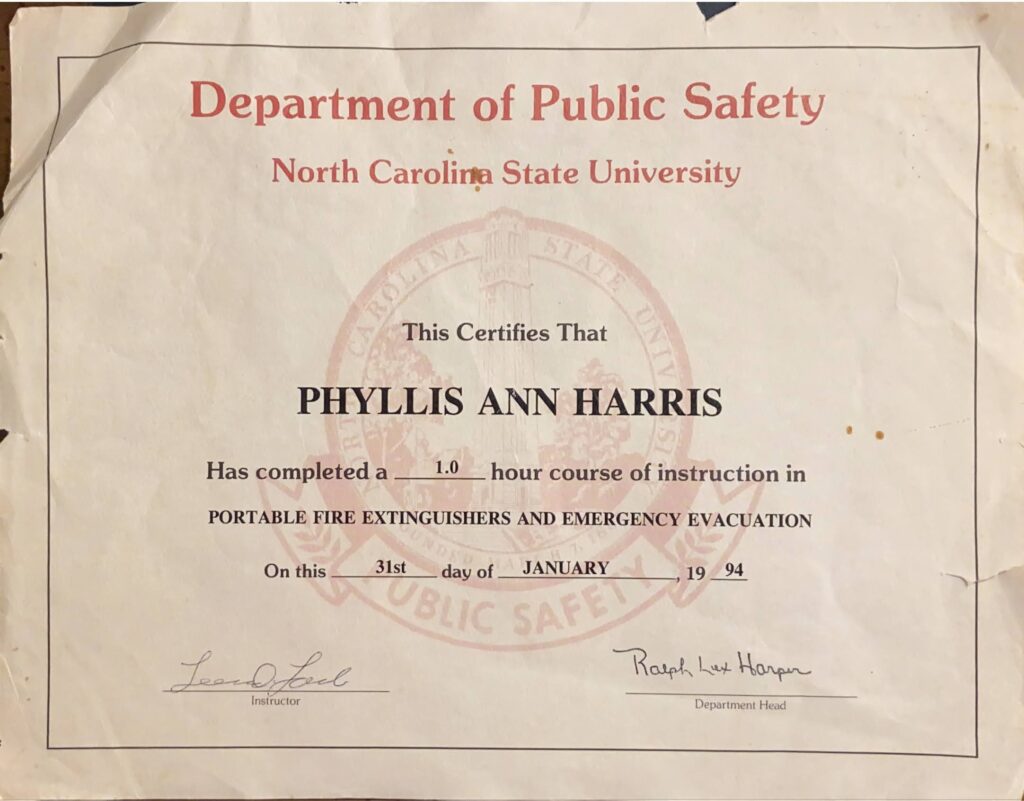
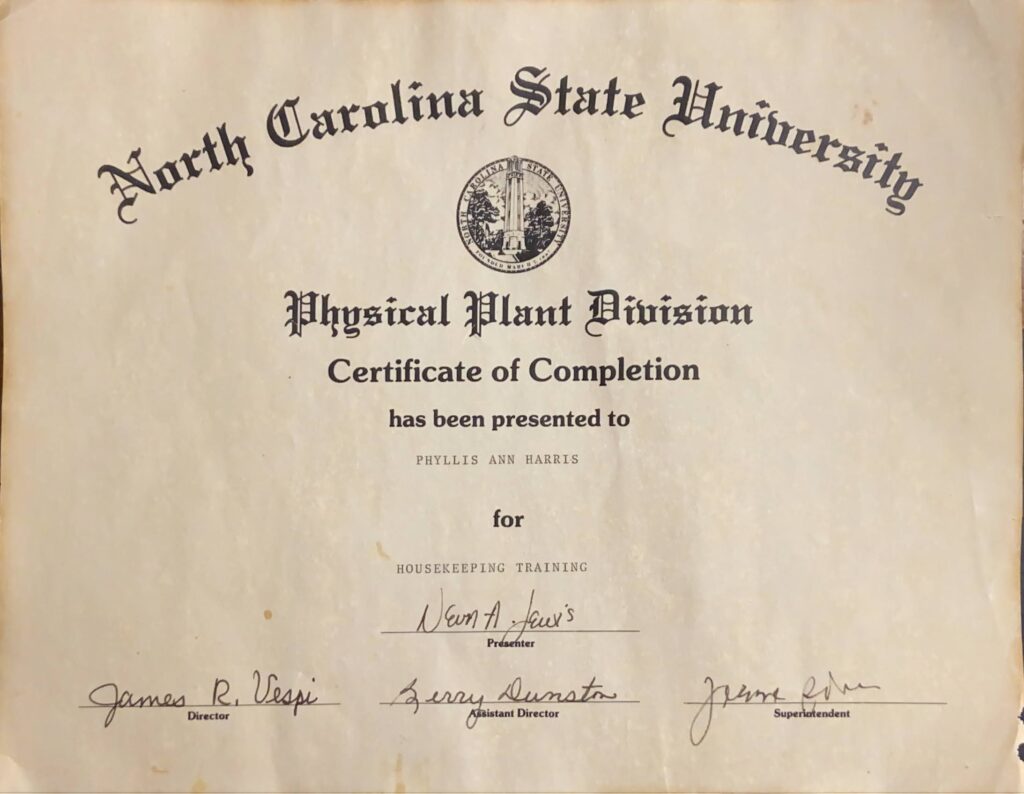
With such a keen awareness and understanding of her own historical connections to the people and places in her life, Cooper has become involved in preserving rural voices and histories both in her hometown and at NC State. It’s an interest she has held since high school, when she interned under Mark Cone with the Southern Nash News to share stories of rural Black history. Recently, she and her mother helped fundraise and develop a web presence to secure donations and promote community engagement for the preservation of Rosenwald Spaulding, a historically Black school campus, as well as St. Stephen Missionary Baptist Church, a historically Black church in Spring Hope.
At NC State, her preservation efforts have included working with Jason Miller, Alumni Distinguished Undergraduate Professor of English in the College of Humanities and Social Sciences, on a project tracing poet Langston Hughes’ visit to Wilson, North Carolina, in 1949.
“The trip was sponsored by the Wilson County Negro Library. They’d fundraise for their bookmobile through his performances,” Cooper explained. “I did some research, and Ms. Judia Herrington, the treasurer of a local high school alumni association, helped me get in touch with two St. Alphonsus School students who witnessed his visit.”
Cooper has leveraged her research about Hughes into graduate-level coursework with Professor Sumita Chakraborty, where she studied archives, gaps and margins — something she could take on because of the Nell Family Extraordinary Opportunity Scholarship.
“Without the scholarship, I wouldn’t have been able to do so much community and preservation work because my priorities would have been elsewhere,” Cooper said.
Cooper has focused on graduating in three years. She is in the process of applying to graduate school to continue her English education at NC State. She looks forward to leveraging her existing research on Hughes, rural histories and the historical power of reading while Black.
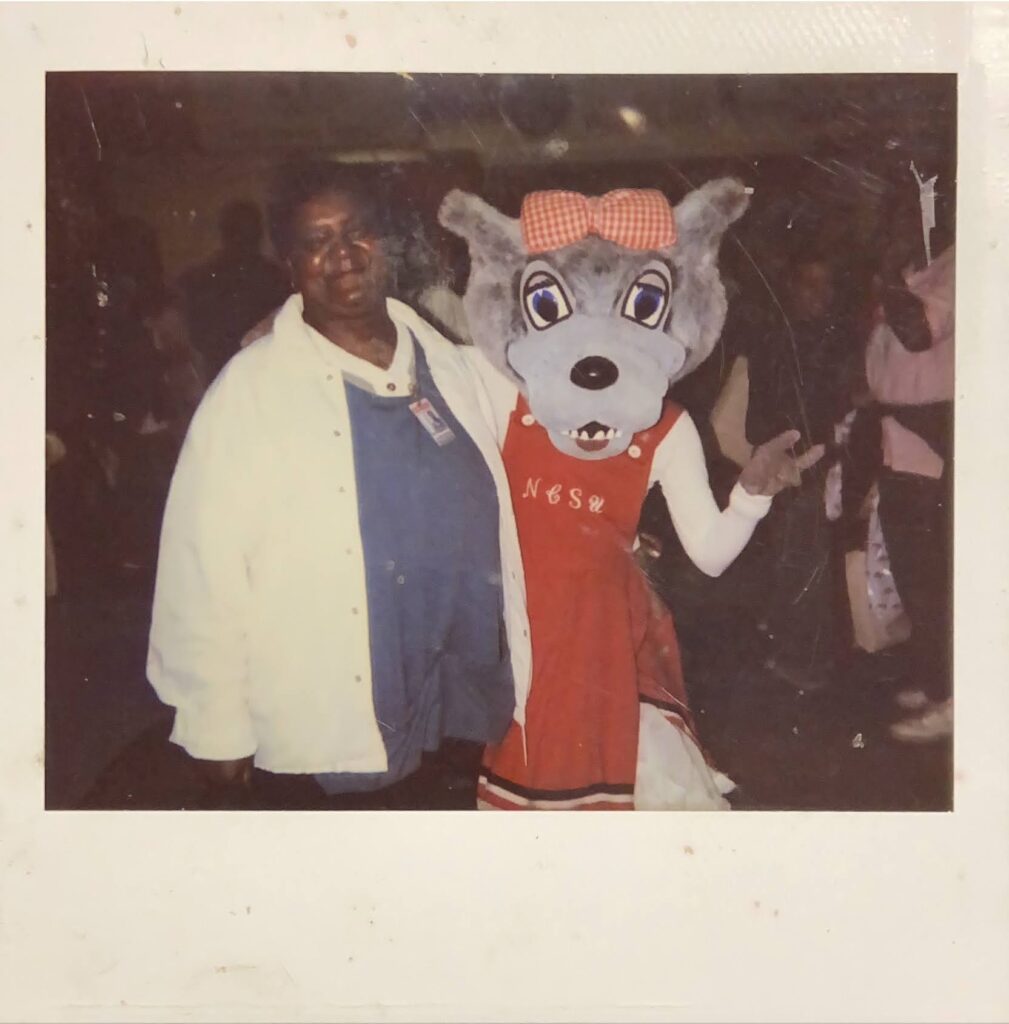
As she works toward graduation, she’s reflective about the work she did to get to NC State in the first place, calling it a “family effort” — one she’s hoping to preserve by archiving her grandmother’s and great-grandmother’s university employee materials.
“I want to add some visibility to my grandmothers’ stories. They helped the school out a lot with their presence. This legacy is just as valid to be archived,” she said.
It’s a legacy 60 years in the making, and with the skills she’s developed at NC State, this story is one Cooper and her family are continuing to write.
“I don’t know if the Nell family knows how much it means to my family for me to be the first one who has made it to NC State as a student after they worked so hard,” she said. “I am very, very grateful, and I thank God for them choosing me .”
Empower More Extraordinary Opportunities
- Categories:
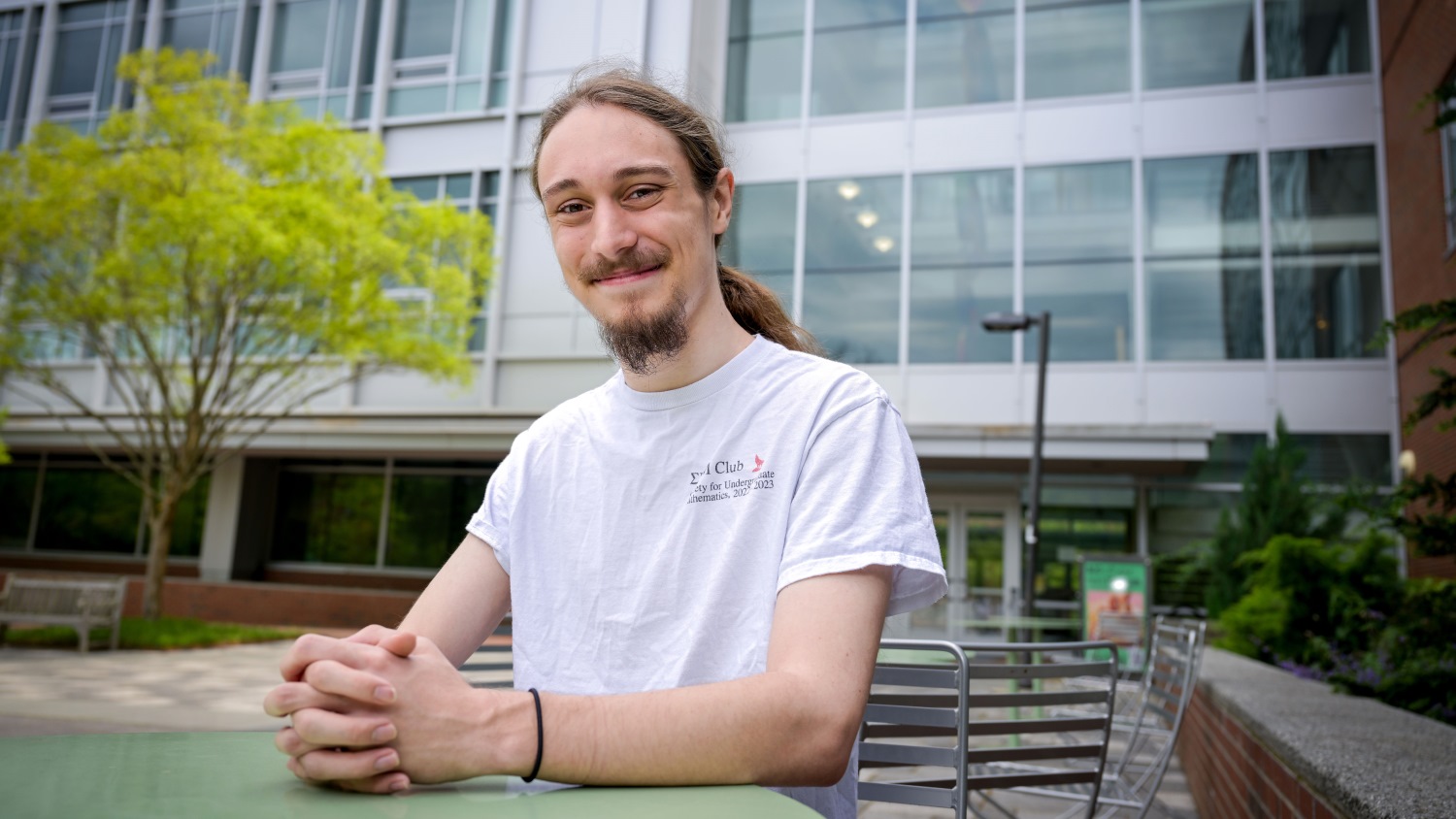

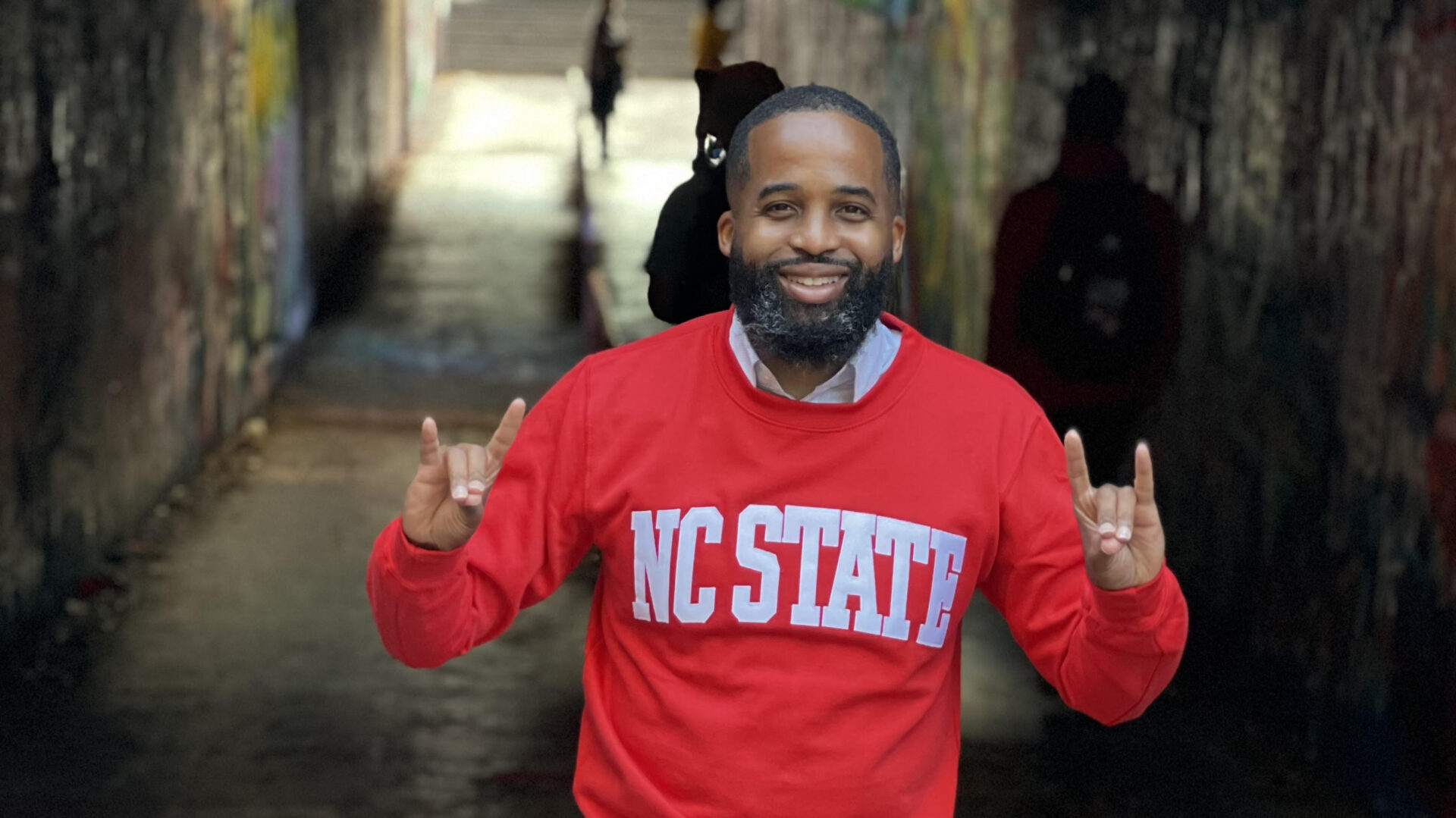
Who’s chopping onions??? What a beautiful story, and I wasn’t surprised to read that the wonderful Shirley Harris assisted this young scholar in any way she could. All the best to Kacey and her family!!!
This is why I chose to work in higher education. Stories like these make coming to work worth it every day! I’m so proud to be a member of the Pack. Congratulations to all!
I loved reading this article; it touched my heart deeply. Maybe she could write a future book about her family who worked at State and how she is carrying on their story(ies) by becoming the living legacy attending. I am almost positive other students might have stories that could be included in the book.